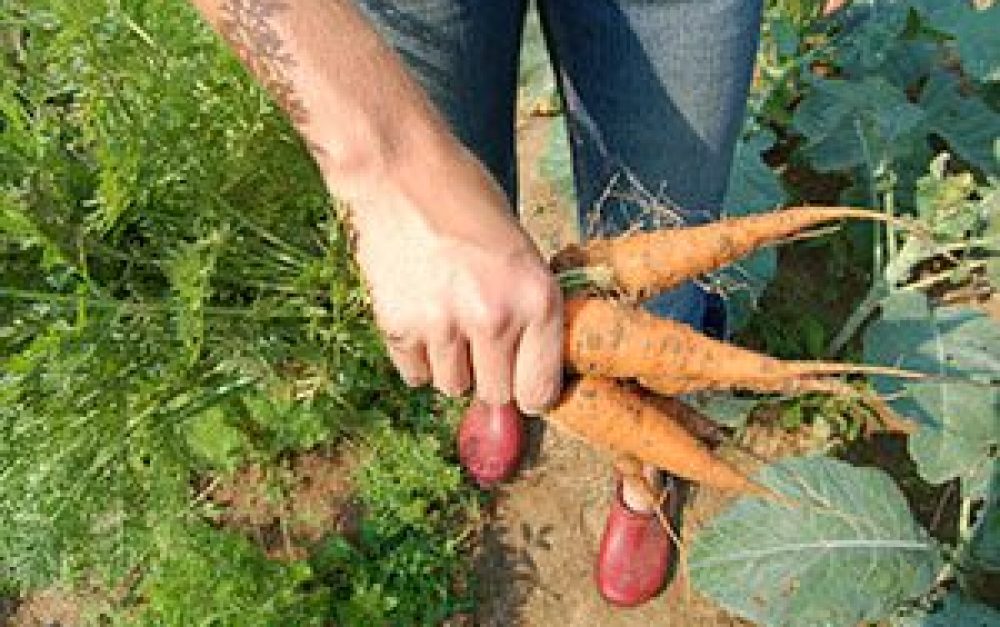New food safety rules now being considered by the Food and Drug Administration (FDA) are causing concern among farmers and consumers across the country.
As currently written, the rules would unfairly burden family farmers, undermine sustainable and organic farming — and reduce the overall availability of fresh, local food. FDA is currently at the "rulemaking stage," turning the food safety bill passed by Congress in 2009 into actual regulations. They are accepting public comments on the draft rules until November 22.
Ensuring the safety of our food supply is critical, and food safety policies haven't been updated since 1938. But why can't FDA support both healthy, safe food production and ecologically sound farming practices?
Heaviest burden on small farmers
The proposed regulations — packaged within the Food Safety Modernization Act (FSMA) — include new rules for both farms and food processing facilities.
The contentious pieces of FDA's rules don't apply to everyone; rather, they unfairly burden smaller scale producers. As reported in Grist, the law won't impact "truly tiny farms: those bringing in less than $25,000 a year. And there are a few exceptions listed for farms making under $500,000 a year." But as noted by reporter Nathaniel Johnson, "it’s pretty easy for a small farm delivering community-supported agriculture boxes to approach that kind of revenue."
Farmers, like Representative Chellie Pingree (D-Maine), are voicing their concerns. She said:
“I’m really worried that if this law is not interpreted in terms of the challenges a small farmer faces, but only in terms of a 1,000 acre field of lettuce, that it could be the end of small, local, sustainable farming. I cannot imagine the outrage on behalf of the consumers if local food systems are regulated out of existence."
Primary points of concern for farmers include regulations that relate to:
- Manure and compost application: Farmers use soil amendments such as manure and compost to improve soil fertility and soil quality, and to enhance populations of beneficial microorganisms in the soil. Under the new rules, farmers would not be allowed apply raw manure to their fields unless it’s nine months or more before harvest. This is particularly untenable for sustainable and organic growers, and is in direct conflict with the National Organic Program regulations which require a three or four-month application interval for untreated manure.
- Conservation practices and organic farming: The proposed produce regulations do not support conservation goals, and in fact hinder them in several key places. Conservation and agroecological practices are central to organic production systems, and the National Organic Program requires that organic farmers conserve biodiversity and protect soil, water, wetlands, woodlands, and wildlife. FSMA rules conflict with several organic program regulations.
- Costs to farmers and consumers: FDA estimates its proposed Produce Rule will result in significant costs to farmers. The costs of coming into and remaining in compliance with the regulations will impact whether farmers are able to stay in business and grow their operations. And the agency doesn't have an estimate of how these costs would get passed on to consumers.
FSMA rules are complex. The National Sustainable Agriculture Coalition staff have put together an impressive analysis for those wanting to dive into more details.
FDA, get it right
As currently written, FSMA would impose a "one size fits all" set of rules on small family farms, forcing them to comply with high-cost, industrial-scale regulations — and many will go out of business. This would lead to less fresh, local produce in schools and community markets, farmers being required to tear out wildlife habitat, and increased reliance on chemical pesticides and fertilizers.
But these costs to farmers aren't a requirement for food safety. As our partners at the National Sustainable Agriculture Coalition put it:
With the right approach, we will be able to help ensure good food safety practices across the nation without placing an unfair burden on family farmers.
Take action » Join PAN, partners, concerned farmers and consumers across the country in urging the FDA to fix new food safety rules so they:
- Allow farmers to use sustainable farming practices, including those already allowed and encouraged by existing federal organic and conservation standards;
- Ensure that diversified and innovative farms — particularly those pioneering models for increased access to healthy, local foods — continue to grow and thrive without being stifled; and
- Provide options that treat family farms fairly, with due process and without excessive costs.
It is extremely important that FDA get these rules right, so farmers can keep growing food that sustains healthy communities and ensures safe, fresh food is widely accessible.
*This blog was updated to reflect FDA's extended comment period, now closing on November 22 instead of November 15.







